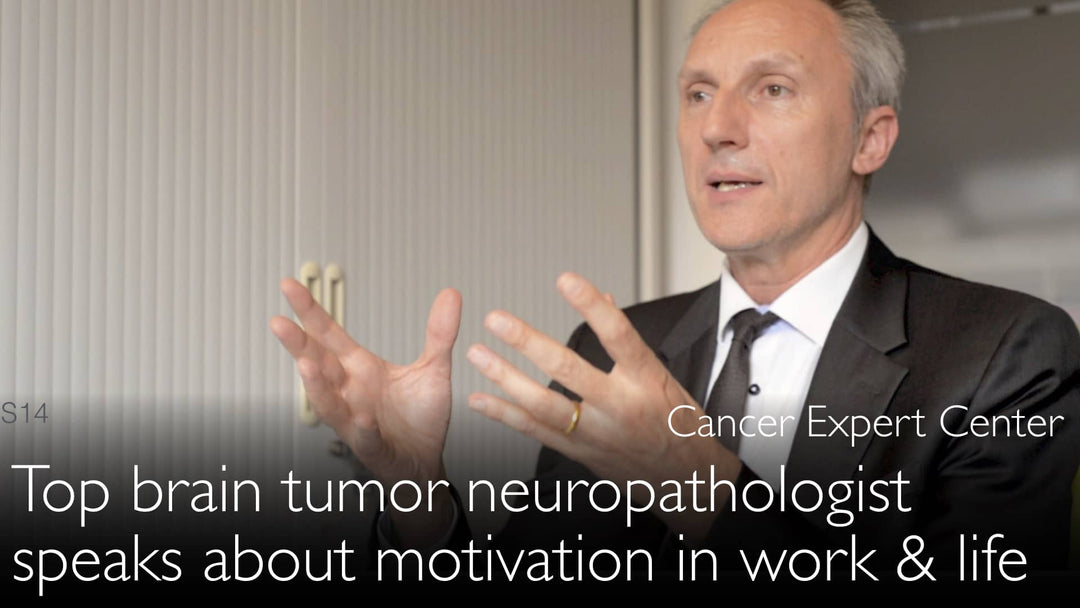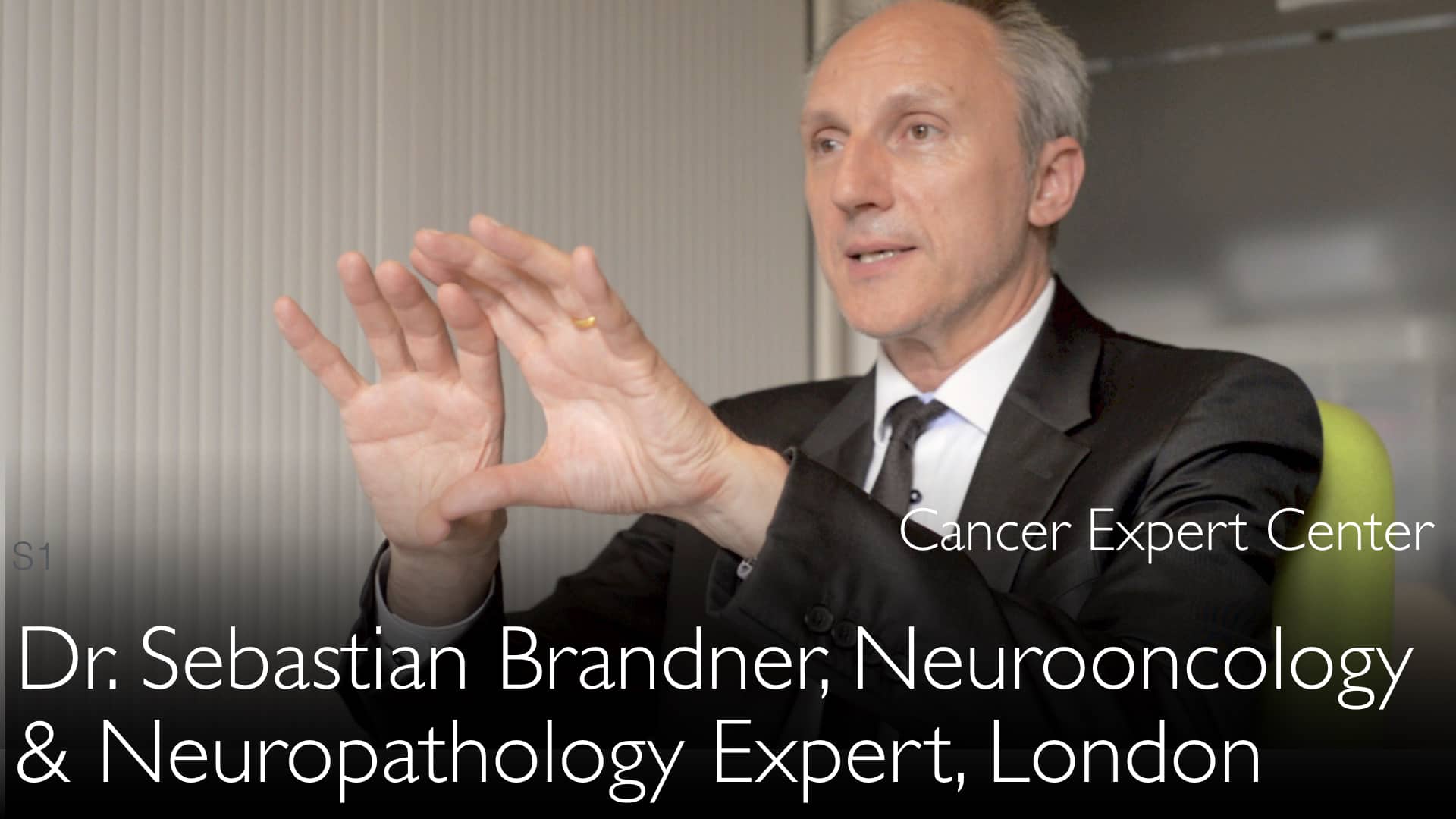Le Dr Sebastian Brandner, expert en neuropathologie, explique comment les cas complexes de tumeurs cérébrales et les défis diagnostiques non résolus guident ses travaux cliniques et de recherche au sein d’un grand centre médical universitaire. Le professeur évoque les avancées en classification moléculaire, les solutions économiques pour le système de santé national (NHS), ses recherches sur la neurodégénérescence et son rôle de mentor auprès de la nouvelle génération de médecins-chercheurs.
Démêler les mystères des tumeurs cérébrales : la motivation d’un neuropathologiste
Aller à la section
- Les cas complexes de tumeurs cérébrales comme moteur
- Les défis de la classification moléculaire en neuropathologie
- Solutions innovantes pour réduire les coûts du diagnostic
- Recherche sur Alzheimer et les maladies neurodégénératives
- Former les médecins-chercheurs de demain
- Les atouts des centres médicaux universitaires
- Transcript intégral
Les cas complexes de tumeurs cérébrales comme moteur
Le Dr Sebastian Brandner puise son énergie dans les 5 % de cas complexes de tumeurs cérébrales qui résistent aux diagnostics conventionnels dans son centre universitaire. « Ce qui nous anime, c’est la curiosité – comment résoudre cette énigme médicale ? », confie ce professeur de neuropathologie. Contrairement aux cas routiniers, ces présentations atypiques exigent des approches innovantes et maintiennent une stimulation intellectuelle constante.
Les défis de la classification moléculaire en neuropathologie
Si la classification moléculaire a révolutionné le diagnostic des tumeurs cérébrales, le Dr Sebastian Brandner relève qu’elle a aussi créé de nouvelles zones d’incertitude. « Nous découvrons désormais des combinaisons de marqueurs tumoraux qui ne correspondent à aucun schéma établi », explique-t-il au Dr Anton Titov. Ces cas limites motivent son équipe à développer des tests complémentaires pour mieux comprendre le comportement des tumeurs et identifier de nouvelles cibles thérapeutiques.
Solutions innovantes pour réduire les coûts du diagnostic
Face aux contraintes budgétaires du NHS, le Dr Brandner mise sur des solutions évolutives, comme une start-up de diagnostic initialement financée par The Brain Tumor Charity. « En attirant plus de demandes de consultation, nous réalisons des économies d’échelle qui réduisent les coûts sans sacrifier la qualité », précise-t-il. Ce modèle a significativement baissé les dépenses tout en élargissant l’accès aux diagnostics moléculaires de pointe.
Recherche sur Alzheimer et les maladies neurodégénératives
Au-delà des tumeurs, l’équipe du Dr Brandner explore des questions cruciales sur les neurodégénérescences, notamment la transmission iatrogène potentielle de la maladie d’Alzheimer. « Nous étudions si certains actes médicaux pourraient transmettre des protéines pathogènes », indique-t-il. Ces travaux s’appuient sur leurs récentes publications et pourraient faire évoluer les stratégies de prévention.
Former les médecins-chercheurs de demain
Le mentorat des jeunes talents est une autre motivation clé pour le Dr Brandner. « Voir des internes devenir des universitaires accomplis est extrêmement gratifiant », partage-t-il avec le Dr Anton Titov. Son service favorise l’ascension des chercheurs prometteurs vers des postes d’enseignants-chercheurs, formant ainsi la relève en neuropathologie.
Les atouts des centres médicaux universitaires
Le Dr Sebastian Brandner souligne l’importance de l’écosystème collaboratif de son centre. « Sans nos équipes pluridisciplinaires et notre infrastructure de recherche, rien de tout cela ne serait possible », affirme-t-il. Ce cadre allie expertise clinique, technologie de pointe et recherche translationnelle, ce qui stimule l’innovation en neuropathologie et en neurologie.
Transcript intégral
Dr. Anton Titov, MD: Professeur Sebastian Brandner, nous avons eu une excellente discussion sur les maladies cérébrales. Nous avons abordé les apports de la neuropathologie et de la neurologie dans le domaine des tumeurs cérébrales. Mais j’aimerais savoir : qu’est-ce qui vous motive au quotidien ? Qu’est-ce qui vous passionne et vous pousse à exceller dans votre recherche et votre pratique clinique ?
Dr. Sebastian Brandner, MD: D’abord, c’est un métier fascinant. Nous sommes dans un centre universitaire de premier plan et un hôpital de recours où collaborent de nombreux spécialistes. Notre intégration au sein d’un centre d’excellence en recherche sur le cerveau rend le travail encore plus captivant.
Dr. Sebastian Brandner, MD: Nous menons des recherches sur les neurodégénérescences et les tumeurs cérébrales. Sans le soutien des services associés, aucun de nos succès ne serait possible. Traiter uniquement des cas simples et répétitifs serait fastidieux. Ce que nous voulons, ce sont des maladies intrigantes et des patients qui nous challengent au quotidien.
Dr. Sebastian Brandner, MD: Environ 5 % de notre activité concerne des cas nouveaux, complexes ou insolubles. C’est cela qui nous stimule. La curiosité est notre moteur : comment résoudre ce problème médical ? La classification moléculaire des tumeurs cérébrales a certes résolu des problèmes diagnostiques, mais elle en a aussi créé de nouveaux, en marge des catégories bien définies.
Dr. Sebastian Brandner, MD: Nous découvrons des combinaisons de marqueurs qui ne cadrent avec aucun schéma connu. Cela nous pousse à utiliser des tests supplémentaires pour percer les mystères de certaines tumeurs.
Dr. Sebastian Brandner, MD: Une autre source de motivation est la gestion de mon service. Le NHS impose des défis financiers, et nous devons faire preuve d’ingéniosité pour réaliser des économies. En attirant plus de consultations pour les tumeurs cérébrales, nous développons des économies d’échelle qui nous permettent de réduire les prix. C’est bénéfique pour le NHS, pour les patients, et les associations comme The Brain Tumor Charity y sont favorables.
Dr. Sebastian Brandner, MD: Cette charity a financé il y a huit ou neuf ans une start-up à hauteur de £75 000 pour mettre en place un test moléculaire. L’objectif était que les revenus générés couvrent les coûts en personnel et équipement. Aujourd’hui, le test est très économique. C’est le genre de projet qui m’anime.
Dr. Sebastian Brandner, MD: Deux fois par an, mon directeur clinique me demande où sont les économies et si je peux réduire les coûts de 10 % par-ci par-là. C’est stimulant, même si un directeur d’hôpital ne devrait pas être obsédé par les économies au détriment de l’excellence. Ces défis me tiennent éveillé la nuit.
Dr. Sebastian Brandner, MD: Le troisième défi est d’obtenir des financements pour poursuivre nos recherches sur les tumeurs cérébrales. Nous devons explorer les questions qui m’intéressent vraiment : trouver de nouveaux biomarqueurs, identifier ceux qui prédisent la survie, et étudier les neurodégénérescences.
Dr. Sebastian Brandner, MD: Nos récentes publications soulèvent une question cruciale : existe-t-il un risque de transmission iatrogène de maladies à protéines ? Certains patients Alzheimer sont-ils à risque ? Un acte médical peut-il transmettre la maladie ? Quels actes sont concernés ? Comment détecter une telle transmission ? Toutes ces questions nous passionnent.
Dr. Sebastian Brandner, MD: C’est ce qui me donne envie de venir travailler. J’aime accomplir des choses, entouré d’une équipe solide. Nos internes produisent un travail remarquable et publient des recherches fantastiques. C’est très gratifiant de les voir évoluer vers des postes de maître de conférences et devenir des universitaires cliniquement excellents. C’est dans cet environnement que cela est possible.
Dr. Anton Titov, MD: J’entends que vous êtes un véritable détective médical, à la recherche de ce qui est caché, de ce qui représente un défi de taille. Cela fait partie de votre essence.
Dr. Sebastian Brandner, MD: Tout à fait !
Dr. Anton Titov, MD: Professeur Sebastian Brandner, merci beaucoup pour cet échange enrichissant sur les tumeurs cérébrales et la neurologie. Je suis certain qu’il intéressera grandement le public international. Merci pour cette interview !
Dr. Sebastian Brandner, MD: Merci à vous !





